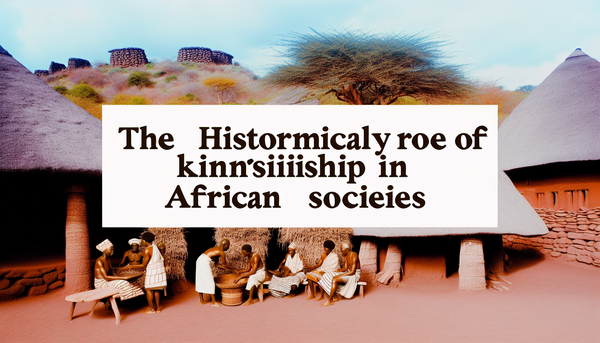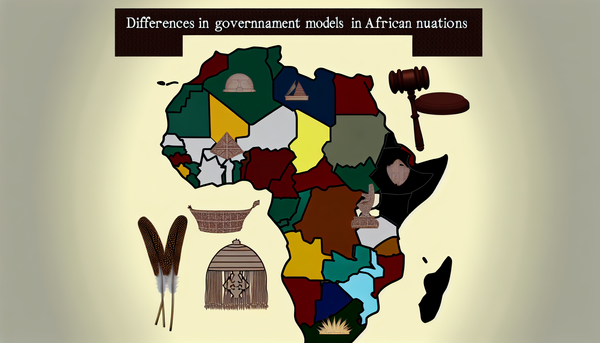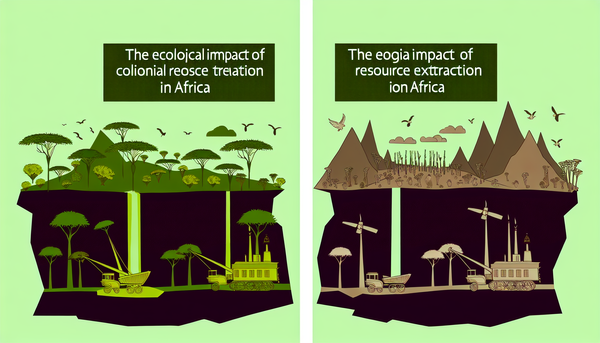The Impact of Globalization on African Economies

Globalization and its Role in Enhancing Trade in Africa
Globalization has significantly transformed trade dynamics within Africa, presenting both opportunities and challenges for the continent's economies. By integrating into the global market, African nations have gained access to a broader range of international markets, leading to increased export potential for various goods and services. This shift has allowed countries like Kenya, South Africa, and Nigeria to boost their trade volumes, benefiting from comparative advantages in agriculture, minerals, and manufactured products.
The establishment of trade agreements, such as the African Continental Free Trade Area (AfCFTA), has further facilitated intra-African commerce. These agreements aim to reduce tariffs, eliminate trade barriers, and create a more seamless trading environment across borders. Consequently, African countries can collaborate more efficiently, enhancing regional supply chains and value-added production.
Moreover, globalization has enabled the influx of foreign investment, which has often been directed towards infrastructure development, thereby improving logistics and transportation systems essential for trade. However, it is crucial to recognize that while globalization promotes trade, it also poses risks such as dependence on global markets and vulnerability to economic fluctuations. Thus, African nations must navigate these complexities carefully to harness globalization's benefits while mitigating its downsides.
Influence of Foreign Direct Investment on African Development
Foreign Direct Investment (FDI) plays a pivotal role in the economic development of African nations, acting as a catalyst for growth and modernization. As global investors seek opportunities in emerging markets, Africa has become an attractive destination due to its rich natural resources, youthful population, and untapped markets. FDI brings essential capital, technology, and managerial expertise, helping to build critical infrastructure and enhance productivity across diverse sectors.
One significant impact of FDI is the creation of jobs, which helps reduce unemployment and improve living standards. For instance, multinational corporations setting up operations often require local talent, thereby developing skills and contributing to human capital development. Additionally, FDI can stimulate local industries by fostering competition and encouraging local businesses to innovate and improve their services.
However, the benefits of FDI are not without challenges. It's crucial for African governments to implement effective regulatory frameworks to ensure that foreign investment promotes sustainable development. Ensuring that local communities benefit from these investments and that there’s a balance between foreign profit repatriation and local economic enhancement is essential.
In summary, while FDI is a powerful tool for development in Africa, its success depends on thoughtful governance, strategic partnerships, and a commitment to inclusive growth.
Technological Transfer and Innovation Growth through Global Engagement
Technological transfer is a critical aspect of globalization that has significant implications for innovation and economic growth in African countries. Through global engagement, African nations can access advanced technologies and expertise that enhance local production processes and services. This transfer occurs through various channels, including foreign direct investment, international partnerships, and collaborations with research institutions.
By integrating new technologies, African businesses can improve efficiency, reduce costs, and increase competitiveness in both local and international markets. For example, the adoption of mobile technology has revolutionized sectors such as banking and agriculture in Africa, enabling greater access to financial services and modern farming techniques. These innovations not only promote economic growth but also improve the quality of life for millions of citizens.
Furthermore, global engagement often leads to the creation of innovation hubs and tech incubators across the continent, fostering local entrepreneurship and encouraging the development of homegrown solutions to regional challenges. Nations like Kenya and Nigeria have emerged as tech hotspots, driven by a dynamic startup culture that thrives on collaboration with global partners.
In essence, the synergistic relationship between technological transfer and innovation through global engagement is essential for Africa's sustainable development, driving economic diversification and resilience in an increasingly competitive world.
Impact on Workforce and Employment Patterns Across Africa
Globalization has profoundly influenced workforce dynamics and employment patterns across Africa, leading to both opportunities and challenges. As countries become more integrated into the global economy, there has been a noticeable shift in job creation, skills demand, and employment types. Increased foreign direct investment and the establishment of multinational corporations have led to the expansion of formal job markets, offering new employment opportunities in various sectors such as technology, manufacturing, and services.
However, the impact of globalization is not uniformly positive. While some regions benefit from job creation, others face the threat of job displacement, especially in traditional sectors like agriculture and textiles. The influx of cheaper imported goods can undermine local producers, leading to employment losses and increased informality in the labor market.
Moreover, the demand for skilled labor is rising, necessitating a transformation in education and vocational training systems to equip the workforce with the requisite skills. Countries that adapt to these changes by investing in human capital development can leverage globalization to achieve sustainable economic growth and job creation.
In conclusion, the impact of globalization on workforce and employment patterns in Africa is complex, requiring targeted policies to harness its potential while addressing the associated challenges for inclusive growth.
Challenges and Opportunities in African Agriculture Due to Global Economies
Global economies exert significant influence on African agriculture, presenting both challenges and opportunities for development. As globalization opens up international markets, African farmers can access a broader range of consumers for their products, thereby increasing export potential. Cash crops such as cocoa, coffee, and fruits find eager markets abroad, providing valuable foreign exchange and enhancing rural livelihoods.
However, this integration also brings challenges. Competition from subsidized agricultural products from developed nations can undermine the profitability of local farmers, making it difficult for them to compete. Additionally, reliance on global markets exposes African farmers to price volatility, which can lead to economic instability for those dependent on single-crop farming.
Climate change further complicates the agricultural landscape, impacting harvests and increasing the need for sustainable farming practices. Global agricultural partnerships can provide access to technology and innovations needed to address these challenges, such as drought-resistant crops and efficient irrigation systems.
Ultimately, the path forward lies in harnessing the opportunities presented by global economies while addressing inherent vulnerabilities. By investing in agricultural productivity, improving infrastructure, and fostering cooperative models, African countries can stimulate growth in their agricultural sectors and achieve food security in an increasingly competitive global market.
Cultural Exchange and its Economic Implications on Regional Markets
Cultural exchange plays a vital role in shaping economic landscapes across regions, particularly in Africa, where diverse cultures coalesce. As globalization fosters greater interaction among nations, the cross-pollination of cultural ideas, practices, and goods creates new market opportunities. This exchange not only enriches societal interactions but also stimulates local economies through the promotion of cultural tourism, arts, and creative industries.
For instance, the vibrant arts and crafts of African nations attract tourists, generating revenue that supports local artisans and creators. Similarly, culinary traditions can pave the way for food tourism, with local dishes gaining international recognition, thus allowing farmers and producers to access new markets. These cultural products often command premium prices abroad, providing an economic incentive to preserve and promote local heritage.
Moreover, cultural exchange enhances trade relationships between nations, as understanding and appreciation of each other's cultures foster mutual respect and collaboration. Collaborations in sectors such as fashion, film, and music can create unique brand identities, drawing global interest and investment.
In conclusion, cultural exchange extends beyond social interaction, offering tangible economic benefits that can stimulate regional markets and contribute to sustainable development in Africa. By embracing and promoting cultural diversity, African nations can leverage these exchanges to enhance their economic standing on the global stage.
Policy Adaptations and Economic Reforms Triggered by Globalization
Globalization has necessitated significant policy adaptations and economic reforms in many African nations to remain competitive in an increasingly interconnected world. Facing challenges such as trade liberalization, foreign direct investment, and technological advancements, countries are compelled to reassess their economic strategies to foster growth and inclusivity.
One major adaptation has been the focus on improving regulatory frameworks that facilitate business operations and attract foreign investors. Revisions in taxation policies, investment incentives, and ease of doing business rankings are crucial in creating a favorable environment for both local and international enterprises. Furthermore, many African governments are prioritizing infrastructure development, recognizing its importance in supporting trade and enhancing productivity.
In addition to regulatory changes, educational reforms have become essential to equip the workforce with skills relevant to a globalized economy. Vocational training programs and partnerships with the private sector aim to address skill gaps, preparing citizens for emerging job opportunities.
In response to the economic challenges presented by globalization, some nations have also embraced regional integration, forming trading blocs to bolster collective bargaining power and streamline trade processes.
In summary, the need for policy adaptations and economic reforms triggered by globalization presents both challenges and opportunities for African nations, helping them navigate the complexities of the global landscape and promoting sustainable economic growth.



